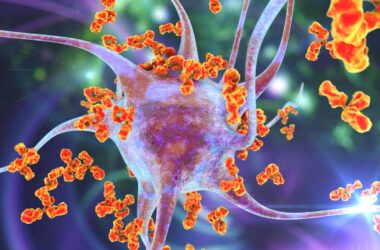Intermittent fasting has gained popularity in recent years due to its ability to promote weight loss by forcing the body to break down fat for fuel. However, intermittent fasting also has potential benefits for the immune system and disease prevention. Recent research in mice has shown that immune cells are more effective at fighting off infections and cancer when they use ketones, an alternative fuel source, rather than glucose.
Traditionally, it was believed that cells prefer glucose for energy. However, studies conducted by Russell Jones at the Van Andel Institute in Michigan have shown that certain immune cells, called T cells, do not produce much energy using glucose. This led researchers to wonder what alternative fuel source these cells might be using.
To answer this question, Jones and his colleagues analyzed data from three studies that genetically analyzed T cells involved in fighting infections and tumors. They discovered that effective T cells, compared to dysfunctional ones, had increased activity in genes involved in breaking down ketones. This indicated that T cells derive energy from ketones when battling disease.
Next, the researchers genetically engineered mice that could not break down ketones and compared their response to an infection with mice that could. The results showed that the normal mice had 50% more T cells producing substances to kill pathogens (cytokines) and could produce more cytokines per T cell. In other words, the ability to break down ketones made T cells more effective at fighting off infections. Similarly, when cancer cells were injected into the mice, tumors in those unable to break down ketones were twice the size of those in mice that could.
These findings suggest that immune cells are more efficient at fighting disease when they use ketones instead of glucose for fuel. They also help explain why fasting for 12 or more hours daily has been shown to improve immune function in mice. Furthermore, this research may shed light on how dietary interventions that increase ketone production, such as intermittent fasting, could impact our ability to fight infections and cancer.
However, it is important to note that not all ketone-producing diets have the same effects. For example, the low-carbohydrate ketogenic diet, which is high in fat, may actually impair immunity by suppressing immune cells. Therefore, further research is needed to determine the optimal dietary approach for immune health.
Insights:
- The research suggests that intermittent fasting, which promotes the production of ketones, may have immune-boosting effects.
- Using ketones as an energy source makes immune cells, specifically T cells, more effective at fighting infections and cancer.
- Fasting for 12 or more hours daily improves immune function in mice, supporting the idea that ketones enhance immune response.
- Not all ketone-producing diets have the same effects on immunity, and high-fat diets may actually suppress immune cells.








